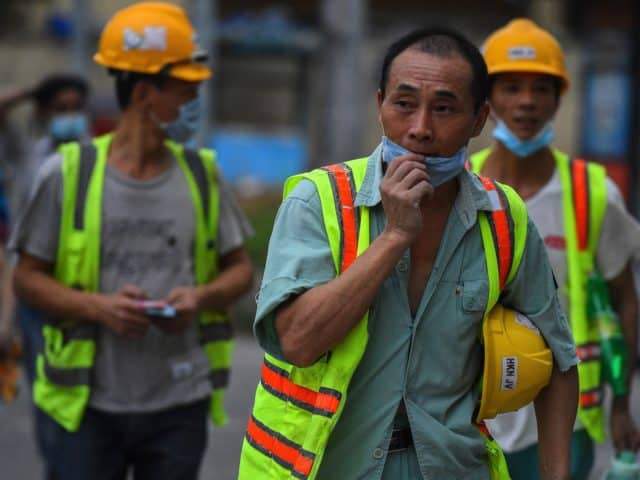Belt and Road: Romania Set to Ban Chinese Companies from Infrastructure Projects

The Romanian government has introduced a memorandum that would see Chinese companies barred from securing infrastructure projects, amid claims of unfair competition and shoddy workmanship.
The Ministry of Transport said that Chinese enterprises are distorting the road and rail infrastructure market in Romania, as the Chinese companies can offer cut-rate prices because they are backed financially by the government in China.
While the order would not specifically bar Chinese companies from infrastructure project auctions, it is understood that companies from China would stand to lose the most from the action, the Romanian news outlet G4Media reported.
According to the Ministry of Transport, Chinese companies regularly fail to acquire the necessary certifications and approvals required by the European Union, such as those protecting workers rights.
Chinese firms are currently involved in many highway construction projects in Romania, having secured billions of Euros in contract rights.
If the move becomes law, the ban would affect both future and ongoing projects, meaning that several Chinese state-backed entities would be directly impacted, including the China Railway 14th Bureau Group, Sinohydro Corporation, and the China Communications Construction Company.
Romania and China initially signed a Memorandum of Understanding on Cooperation under the Belt & Road Initiative (BRI) in 2015.
The two countries agreed in May of 2019 to establish a Project Venture Company on nuclear energy that would have seen the China National Nuclear Corporation construct two nuclear power plants in Romania, with China owning 51 per cent of the shares in the $7 billion project.
However, in June of last year, the Romanian government requested that the negotiations be cancelled, with then Prime Minister Ludovic Orban saying: “It is clear to me that it will not work with the Chinese.”
The Chinese propaganda outlet Belt and Road News suggested the move was a result of Romania being “Pro-American” adding that “the two Countries signed a missile defence deployment agreement four years ago.”
China has increasingly looked to expand its Belt and Road Initiative (BRI) in Eastern Europe.
Through what has been termed ‘debt-trap diplomacy’, the Chinese Communist Party (CCP) has sought to expand its global influence through offering predatory loans to developing nations throughout Asia, Africa, South America, and Eastern Europe.
The loans afford the CCP the opportunity to indebt the country and the ability to seize the properties if they fail to repay Beijing. The scheme also sees Chinese companies ship in labourers from China, meaning that even more of the economic benefits are accrued by China.
A notable example of the communist party’s infiltration into Eastern Europe is in Montenegro. The small European nation has entered into an 800 million Euro debt agreement with Export-Import Bank Of China to build a highway connecting the Adriatic coast to the Serbian capital of Belgrade.
The project has been dubbed a ‘Highway to Nowhere‘, however, as it is unlikely that Montenegro will be able to borrow enough money to see the project completed.
As a result of the Chinese loan, Montenegro’s debt has already skyrocketed to over 65 per cent of GDP even before the pandemic. The government was forced to raise taxes, partially freeze public sector wages, and even end a government benefits for mothers.
Should Montenegro default on the loan, the agreement would grant the CCP access to the territory in the country.
China has also been looking to expand its holdings in Greece, with the China Ocean Shipping Company (COSCO) demanding that Greece’s state-asset privatization agency hand over 16 per cent stake in the Piraeus Port Authority, which would give the Chinese company 67 per cent ownership of the critical European port.
An agreement struck in 2016, said that if COSCO were to complete 300 million euros ($365.8/£264.2 million) in investments in the port then they would be entitled to the additional shares. While the Chinese company has admitted that it will not complete the investments on schedule, it has blamed permitting issues and therefore has demanded the extra shares.
Greek shipowner Evangelos Marinakis told the Piraeus City Council in November: “We haven’t seen and we aren’t going to see anything good coming from the Chinese and COSCO.”
Photo: ISHARA S. KODIKARA/AFP via Getty Images
Link: Romania Set to Ban Chinese Companies from Infrastructure Projects (breitbart.com)











